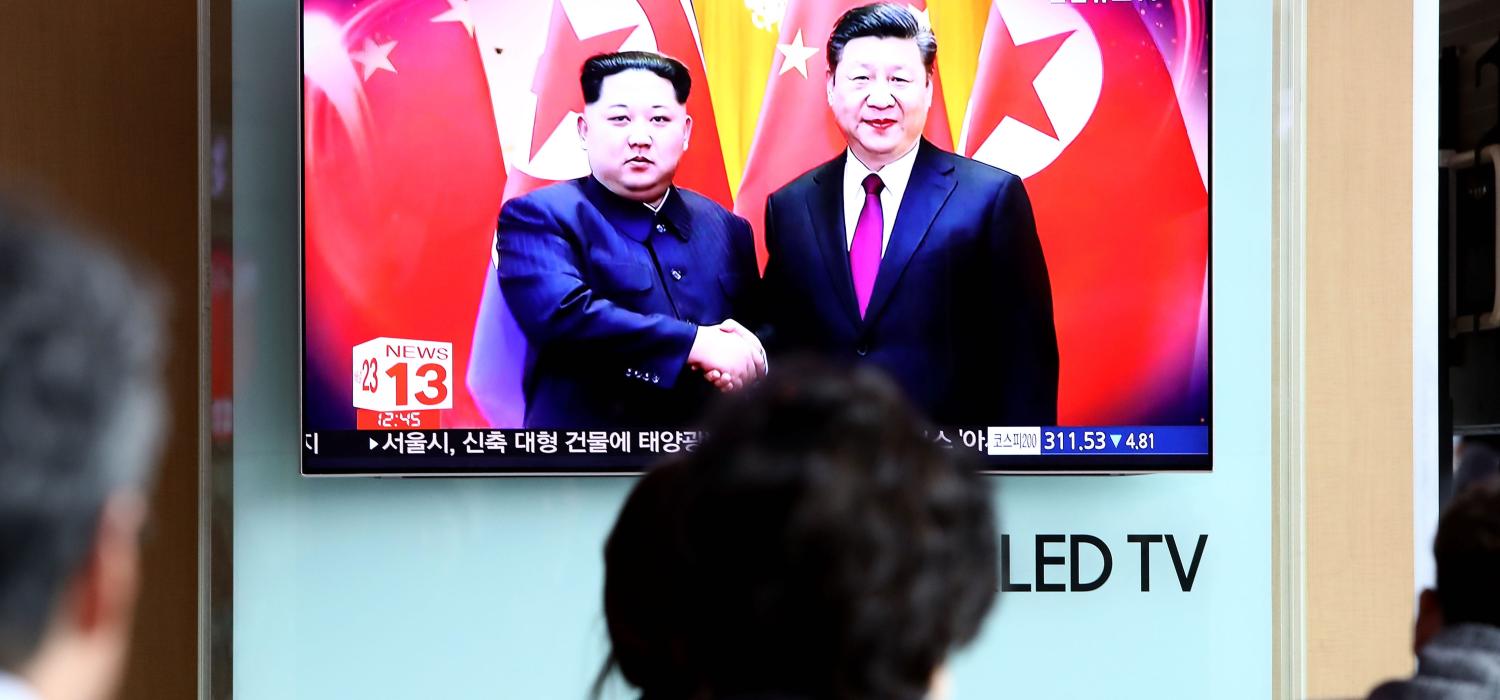The week that was on The Interpreter.
In his first known trip outside the country as North Korean Supreme Leader, Kim Jong-un travelled to Beijing to meet Chinese President Xi Jinping. Robert Kelly:
Previous Chinese negotiating behaviour suggests that a meeting with Xi carries real weight. Xi would not grant this meeting unless the Chinese were genuinely concerned about the summits to come and wanted some kind of role to play.
And US President Donald Trump agreed to meet Kim Jong-un earlier this month. Andray Abrahamian:
Much of the world is already deeply suspicious of Donald Trump. Making a deal and then failing to follow through would give Pyongyang the moral high ground and isolate the US.
Still on North Korea, Sam Roggeveen argues for a deal:
I argue that Trump ought to offer Kim a grand bargain: give up your ICBM program, and we will permanently withdraw our troops from South Korea. A deal like that would change the politics and diplomacy of the Korean Peninsula, and have reverberations throughout Asia. But the shift away from an American-led security system in the region is inevitable anyway.
Following allegations of sexual misconduct committed by Oxfam UK employees in Haiti in 2011, 26 other organisations have reported incidents to the UK Charity Commission. Jeni Whalan:
With the British aid sector haemorrhaging trust and donations, the boards of aid organisations everywhere should be put on notice: get governance right, because the ‘iceberg’ is coming and it is a huge, sector-wide problem.
The European Union plans to impose a 3% tax on total revenue rather than profits for parts of the digital economy. Stephen Grenville:
Companies such as Facebook, Apple, Netscape, Uber, eBay, Airbnb, and Amazon accrue large revenues from advertising, sale of data, platform revenues, and subscriptions which are readily channelled to low-tax jurisdictions. Tech-based companies are the fast-growing sector. In Europe they pay less than 10% company tax, compared with 23% for conventional companies. Value-creation through interaction with customers takes place in one country, while profits accrue in another.
Kate Grealy on countering violent extremism in Indonesia:
Positive interventions and programs have been driven by civil society groups. Yet the overall effectiveness of CVE in Indonesia has been held back by government ineffectiveness, including vague or ad-hoc deradicalisation programs, and failed attempts at prison management reform.
Myanmar President U Htin Kyaw – the first elected civilian president in Myanmar in over half a century – resigned last Wednesday. He was replaced by U Win Myint on Wednesday. Elliot Brennan:
A new face brings the chance for a different relationship between the president and Aung San Suu Kyi. A more tense relationship, or one in which the president has greater opportunity to speak freely, may push debate and speed up reforms – but that may be too hopeful.
The Indonesian Solidarity Party (PSI) formed in 2014, aiming to provide a political platform for young Indonesians. Febriana Firdaus:
Starting in November 2014 with 23,000 members, the party has flourished to claim approximately 400,000. But PSI is still a long way from becoming a political force. If the party wants to pass the 4% parliamentary threshold of votes required to be selected in the House Representatives (more than 7 million votes nationally), the first challenge is to gain trust. The second is to prove PSI can attract attention and break exisiting voting habits.
China’s Tiangong-1 space laboratory is due to plummet to earth in the next few days – but we needn’t panic. Morris Jones:
Debris from space falls on Earth constantly. Roughly a metric ton of natural material, sometimes appearing as shooting stars, hits us daily. It’s mostly harmless, and that’s also true of the satellites and rocket stages that come home.
President Rodrigo Duterte’s management of the Philippines relationships with the United States and China is uneven and may run down the US alliance. Jay Batongbacal:
Standing alliance cooperation activities and projects seem to be more transactional, improvisational, and opportunistic in nature. Official actions at the operational level appear starkly disconnected from official positions and statements at the policy level.
Defence Industry Minister Christopher Pyne writes on the Australian Government’s defence export strategy:
I often say that Australia will never be able to compete when it comes to making T-shirts. But we can compete when it comes to making high-end, world-beating defence equipment: from radars to armoured vehicles, ammunition to radios, sonars to tail fins, and yes, even warships.
Finally, the ball-tampering scandal has left the Australian cricket team is in its darkest days since the underarm incident. Rodger Shanahan:
The Australian cricket team is Australia, so the way in which its players carry themselves influences how Australians view ourselves. The shame they have brought on themselves is the shame they have brought on the country. It is that serious.
